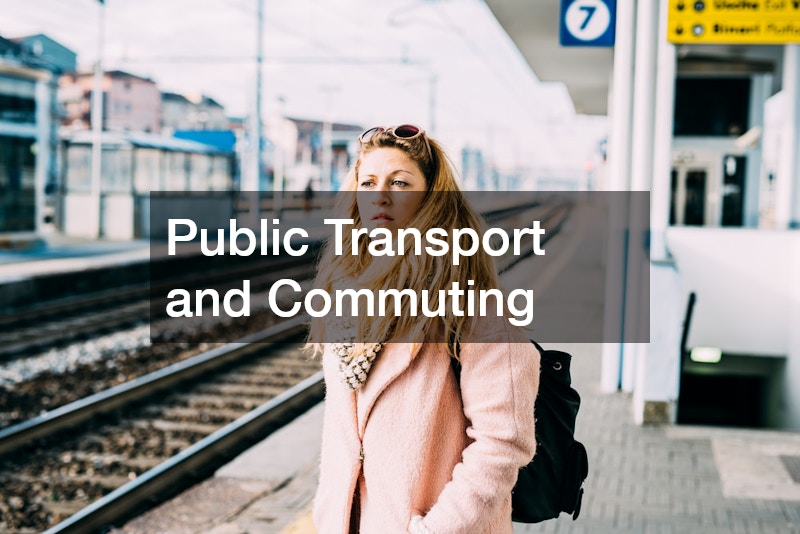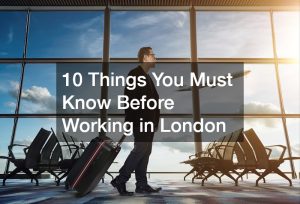
London, with its vibrant mix of culture, history, and business opportunities, is an attractive destination for professionals from all over the world. However, working in London requires a bit of preparation, especially if you’re moving from abroad. From securing the right work permits to navigating its cost of living, there are several key factors to keep in mind. Here are 10 important things you must know before starting your professional journey in this bustling city.
1. Securing a UK Visa and Work Permit
The first and most important step to working in London is obtaining a valid visa. The UK requires foreign nationals to have the correct visa type for employment, and there are different categories depending on your occupation and length of stay.
Immigration lawyers in the UK can provide essential guidance for navigating this often-complicated process. Once your visa is secured, you’ll need a work permit, which typically involves sponsorship from a licensed UK employer. The application process includes a points-based assessment, ensuring that the worker has the necessary skills and qualifications.
2. Understanding the UK Tax System
Working in London means becoming familiar with the UK tax system. Income tax rates are progressive, meaning they increase as your salary grows. For example, income up to £12,500 is tax-free, but beyond that, tax rates vary from 20% to 45%, depending on your earnings. It’s crucial to know how much you’ll be taxed, as it affects your take-home pay. If you’re self-employed, you’ll need to keep detailed records of your earnings and pay annual taxes. Thankfully, the UK also provides tax relief on certain payments, including pension contributions and charity donations.
3. The National Minimum Wage
London workers are entitled to the National Minimum Wage (NMW) or National Living Wage (NLW), depending on their age. The rates are regularly reviewed and can vary depending on your age group. As of 2022, the National Living Wage for workers over 23 is £8.91 per hour, and lower rates apply for younger workers. Apprentices also have their own minimum wage. It’s important to ensure that you’re being compensated fairly, no matter your job type or working hours.
4. The Importance of a Strong CV
A well-prepared CV (Curriculum Vitae) is often essential when applying for jobs in London, especially in competitive fields like finance, technology, or media. While some industries may not require a CV for all positions, it is generally expected for corporate roles. Additionally, maintaining a strong online presence through platforms like LinkedIn can help expand your professional network. London is home to many global companies, so presenting your experience and qualifications in the best possible light is essential.
5. Networking Is Key
London’s job market can be highly competitive, and many opportunities are found through networking rather than traditional job listings. Studies show that up to 80% of jobs are filled through personal connections and referrals. Building a strong network in the city can open doors to opportunities you may not find elsewhere. Attending industry events, connecting with professionals on LinkedIn, and joining social groups related to your field are effective ways to build a network in London.
6. Navigating London’s High Living Costs
One of the biggest challenges of working in London is managing the high cost of living. Housing, in particular, is expensive, with rental costs averaging £781 per week in some parts of the city. If you’re working in central London, rent will likely be higher. It’s important to budget for these expenses before committing to a job in the city. Many workers choose to live in outer boroughs where rent is more affordable, even if it means a longer commute.
7. Public Transport and Commuting
London’s public transport system is one of the most comprehensive in the world, with buses, trains, and the famous Underground connecting all corners of the city. Before taking a job in London, it’s important to consider commuting costs, which can vary based on how far you live from your workplace. Travel zones range from 1 (central London) to 6 (the outer boroughs), and your costs increase the further out you live. Investing in an Oyster card or opting for a monthly travel pass can help manage transport expenses.
8. Minimum Holidays and Leave Entitlement
If you’re working full-time in London, you’re entitled to a minimum of 28 days of paid annual leave per year. This includes public holidays but can vary based on your employment contract. Workers on part-time schedules or zero-hour contracts also qualify for prorated leave. Understanding your leave entitlements is crucial, especially if you’re moving from a country where holiday policies are different.
9. Know Your Notice Period
In London, employers must provide a notice period if they intend to terminate your employment, and the length of this period depends on how long you have been with the company. For example, if you’ve worked with a company for between one month and two years, you’re entitled to at least one week’s notice. For employees with 12 or more years of service, the notice period can extend to up to 12 weeks. Conversely, when you decide to leave a job, you’ll need to give your employer notice as well, with the length specified in your contract.
10. National Insurance Number
Your National Insurance (NI) number is essential for working in London. It tracks your contributions to the UK’s social security system, which funds benefits such as pensions and unemployment support. If you earn more than £184 per week or are self-employed with profits over £6,515 annually, you are required to contribute. If you’re coming from abroad, you’ll need to apply for an NI number, which you can do after you start working.
Conclusion
Working in London is a fantastic opportunity to grow both professionally and personally, but it requires thorough preparation. From securing the right visas and understanding taxes to managing living expenses, there’s a lot to consider. With the right planning and advice from experts like immigration lawyers UK, you can navigate the challenges and make the most of your experience in one of the world’s greatest cities.
.




